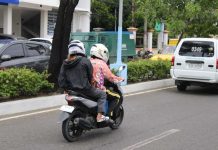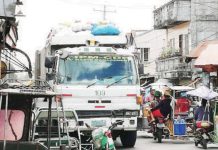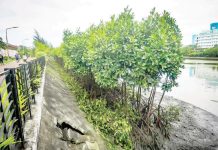
AS A GRADUATE school student of ASEAN Studies, I initially monitored the initiatives of ASEAN at the earliest stages of the pandemic. Over time, having heard little except for the individual responses of the ASEAN member states (AMS), I lost interest.
I believe that as a regional bloc, ASEAN should collaborate to respond and manage the pandemic. The way I see it, it’s “To each his own” where ASEAN is concerned. What a blow considering how ASEAN is pushing for regionalism!
According to Nehginpao Kipgen and Aakriti Bansal in their article, “ASEAN needs to come together over COVID-19 pandemic”, it is important to study the impact of COVID-19 in ASEAN for two crucial reasons:
1) ASEAN’s huge impact on global economy and trade. Given the importance of China and the U.S. to the regional bloc, and with both countries being badly affected, and the region’s closeness to South Asia, ASEAN should not be ignored;
2) South Asia’s regional South Asian Association for Regional Cooperation bloc has often struggled with the concept of unity and regional integration because of the differences of approach among its member states. ASEAN, however, has managed to flourish because of the principles that drive the region’s integration.
Be that as it may, we can see for now that AMS are individually responding and struggling to manage the pandemic. Well, that’s how I see it. If regional integration was the center piece prior the pandemic, I certainly don’t see it in the midst of the pandemic.
As a region, the highlighted singular move was the holding of the special ASEAN Plus Three Summit on April 14, 2020 which included the 10 AMS, China, Japan, and South Korea. Unsurprisingly, the action came following heavy criticism of the slow response to the pandemic, especially in the initial stages.
In the said summit, the ministers came up with several steps to fight the pandemic, including the establishment of COVID-19 ASEAN Response Fund, and ways and strategies to ease the global health crisis.
According to the same article, “A fund alone is not enough”. “Once ASEAN’s more medically-equipped members manage to contain their outbreaks, they should start helping other ASEAN neighbours, as economic disparity among AMS is apparent.”
The closing paragraph of “The Declaration of the Special ASEAN Summit on Coronavirus Disease 2019 (COVID-19)” dated April 14, 2020, states:
“We pledge to remain united and vigilant against COVID-19 and commit to work closely with the WHO, ASEAN’s external partners and the international community to suppress the spread of the pandemic, protect people’s lives and livelihoods, maintain socio-economic stability while sustaining ASEAN Community building momentum for sustainable development, inclusive growth and leaving no one behind.”
Big words. However, we still need to see how ASEAN is going to work together to flesh out the commitments in the said declaration.
Meanwhile, in “The Politics of Pandemic in Southeast Asia”, Zachary Abuza and Bridget Welsh tell us that no government is likely to fall in the short term as a result of its COVID-19 response but the impact on politics is significant.
Both asserted that the pandemic has wreaked havoc on the economies of Southeast Asia, which are dependent on tourism and exports. The IMF is predicting a global economic contraction of 3%, and all evidence suggests that the globalized economies of Southeast Asia will be deeply impacted, with recessions in Thailand, Indonesia, Singapore, Malaysia, and the Philippines.
It is interesting to zero in on their observation that the pandemic showed us the “abject failure in governance in many countries”. The article further stated, “States have basic obligations to provide security, education, public health, and a legal system to their electorates. In country after country, public health systems were exposed to be underfunded and poorly staffed. Governments were caught flat-footed despite seeing the crisis unfold in China and experiencing other public health scares since the 2003 SARS outbreak”.
Given these harsh realities, where indeed is ASEAN in the pandemic?
***
Apologies: In a paragraph in my previous column, “Let’s go back to the basics, says Bohol Governor”, I wrote “ASEAN member state” instead of “country”. Taiwan is not an ASEAN member state. I apologize for the error.
***
For comments, you may reach the writer at belca.87@gmail.com./PN







